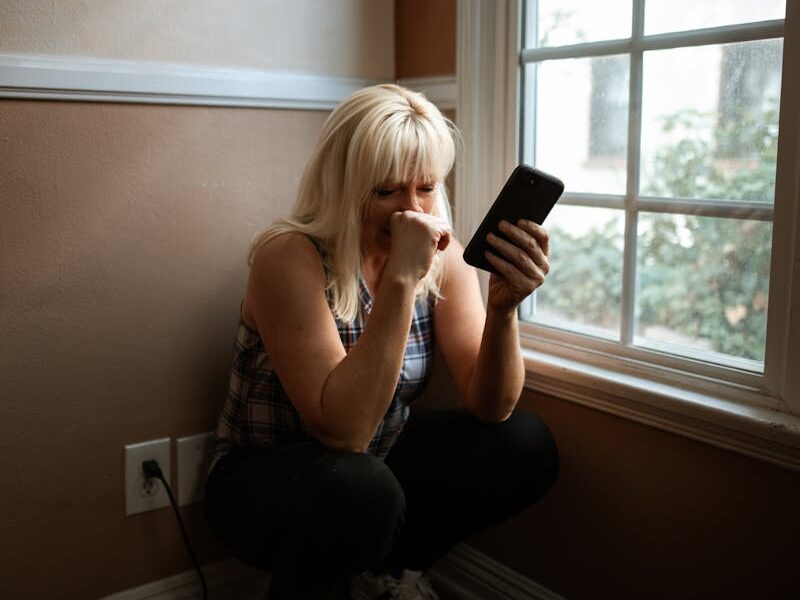
Most relationships don’t fall apart overnight. It’s usually the little thing that quietly chip away at the connection. Over time, these small patterns can turn love into resentment, closeness into distance, and comfort into frustration. Here are the 15 small habits that can slowly but surely destroy even the strongest bond.
Brushing Off Your Partner’s Feelings

When someone shares how they feel, and you act like it’s no big deal or tell them to “just get over it,” it sends a message that their emotions don’t matter. Over time, this can make your partner feel unheard or even ashamed of how they think. If that happens enough, they might stop opening up altogether, and that silence can quietly kill the emotional connection.
Keeping Score Over Everything

If you’re always remembering what you did versus what they didn’t do, it turns your relationship into a competition instead of a partnership. Keeping a score might seem fair at the moment, but it builds resentment fast. Instead of focusing on giving with love, you start showing with conditions. That back-and-forth bitterness can slowly drain the joy right out of your time together.
Ignoring the Small Moments of Affection

It’s easy to skip the good morning kiss, the hand squeeze, or the quick “I love you” when life gets busy. But those tiny gestures are like glue—they hold relationships together without making a big scene. When you stop showing small bits of affection, the distance starts to grow without either person realizing it until you’re suddenly strangers who live under the same roof.
Constantly Checking Your Phone

When you’re always on your phone while you’re supposed to be spending time together, it sends the message that something else is more important. Even if you’re scrolling, it pulls your attention away. Over time, it makes the other person feel invisible or boring. Being physically present but mentally checked out can damage intimacy more than being apart sometimes does.
Not Saying Thank You Anymore

Gratitude might sound basic, but it’s a powerful habit. When you stop thanking your partner for the little things—like making dinner, doing errands, or even just listening—it can make them feel taken for granted. Over time, that lack of appreciation can turn into quiet resentment. Just a simple thank you now and then can go a long way in keeping love alive.
Making Jokes at Their Expense

Teasing can be fun when it’s lighthearted and loving. But when jokes start hitting sensitive spots or feel more like little digs, they slowly hurt more than they make anyone laugh. If your partner starts feeling embarrassed or put down, even in private, it can wear away at their self-esteem and create a hidden layer of pain in your relationship that’s hard to heal.
Avoiding Hard Conversations

It might feel easier to stay quiet and keep the peace, but not talking about what’s bothering you doesn’t make problems go away. It just pushes them under the surface, where they grow and twist into resentment. Over time, avoiding real conversations can build walls that feel impossible to tear down. Being honest—even when it’s hard—is how trust and intimacy grow.
Expecting Them to Read Your Mind

No one’s a mind reader, no matter how close you are. When you expect your partner to “know” what’s wrong without telling them, it sets both of you up for frustration. It also creates confusion and emotional distance. Healthy communication isn’t about guessing games—it’s about using words, even when it’s uncomfortable. That’s what keeps the connection strong and the tension low.
Comparing Them to Others

Even small comments like “Why can’t you be more like…” can cut deep. Comparing your partner to a friend’s spouse or an ex—even in your head—can slowly chip away at their confidence and sense of value in the relationship. It makes them feel like they’re never enough. Over time, those comparisons don’t just hurt them—they create distance and destroy emotional safety.
Saying “I’m Fine” When You’re Not

When you pretend everything’s okay to avoid a fight or keep things smooth, you’re hiding a piece of yourself. Over time, pretending to be fine builds walls between you. Your partner may stop trying to check in or understand you, and that emotional gap keeps growing. Vulnerability might feel risky, but it’s what allows real closeness and trust to stay alive.
Not Making Time for Each Other

Life gets very busy, but when you stop carving out time just for each other, it sends a quiet message that the relationship is no longer a priority. Whether it’s skipping date nights or always putting work first, the lack of intentional time can make you both feel disconnected. Relationships don’t run on autopilot—they need consistent effort, even in small doses, to stay strong.
Holding onto Grudges

It’s okay to get upset sometimes—that’s normal. But when you forgive someone on the outside and still carry resentment on the inside, it builds emotional tension that never really goes away. That grudge sits there, quietly poisoning the connection. Letting go doesn’t mean forgetting; it means choosing peace over punishment, and that’s what allows healing and real love to keep growing.
Always Needing to Be Right

Trying to win every argument might feel good at the moment, but it often comes at the cost of closeness. When one person always has to be right, the other starts to feel small, unheard, or defeated. Relationships aren’t about keeping score or proving who’s smarter—they’re about understanding, compromising, and meeting in the middle, even when it’s not easy.
Forgetting to Apologize

We all mess up, but when you don’t say sorry—or say it without meaning it—it leaves wounds that don’t heal. A real apology shows that you care about how your actions affected the other person, even if you didn’t mean to hurt them. It’s not about blame; it’s about connection. Without sincere apologies, misunderstandings turn into resentment that builds quietly over time.
Taking Each Other for Granted

When you stop noticing the good things and start expecting them, the relationship slowly loses its spark. Over time, it turns from something you’re thankful for into something you assume will always be there. That comfort can become dangerous if it means you stop showing love, kindness, or effort. Relationships need attention, and without it, they slowly wither, even if no one meant for them to.

